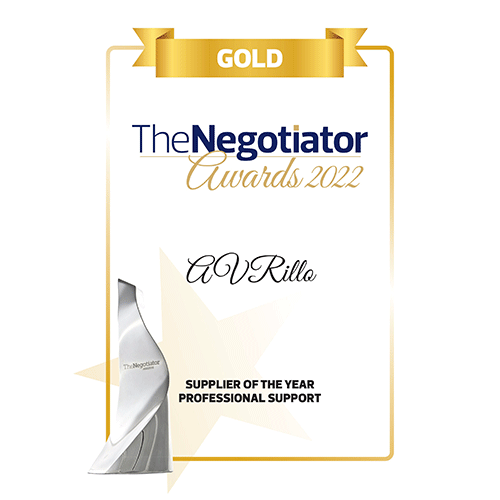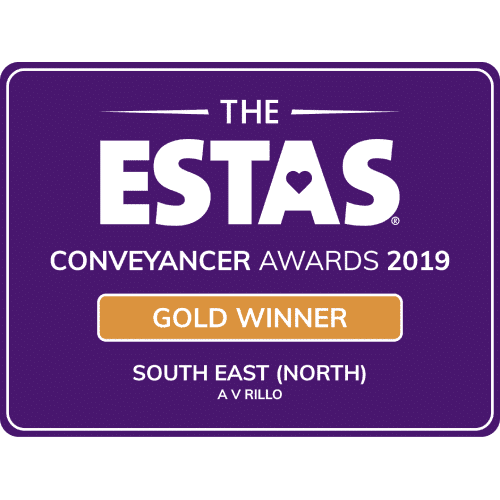

and start saving money now
and start saving money now
Get a FREE Conveyancing Quote
The Best Conveyancing Lawyers in Bolton
Here at AVRillo Conveyancing in Bolton, we offer a professional service to make sure this process goes smoothly. We have many years' experience in the industry and work with homeowners across Bolton to ensure their transactions go through without any problems. If you need help with moving house or would like some advice on what's involved, please don’t hesitate to contact us.
Reasons Why You Should Hire Our Conveyancing Services in Bolton for Your Property Transfer
 We Are Not ComplacentWe believe in continuous growth, and we're always looking for ways to improve and enhance our service. We invite feedback from our customers and invest in the most up-to-date technology and systems with the single goal of providing a better and more valuable service for our clients.
We Are Not ComplacentWe believe in continuous growth, and we're always looking for ways to improve and enhance our service. We invite feedback from our customers and invest in the most up-to-date technology and systems with the single goal of providing a better and more valuable service for our clients. We Have Fixed FeesConveyancing services are often costly owing to the complexity of property transactions. AVRillo Conveyancing has compared its costs with hundreds of other conveyancing firms in the UK and has made sure that they are consistent and comparable to others.
We Have Fixed FeesConveyancing services are often costly owing to the complexity of property transactions. AVRillo Conveyancing has compared its costs with hundreds of other conveyancing firms in the UK and has made sure that they are consistent and comparable to others. We Value CommunicationOur team of experts will take care of everything, beginning with our conveyancers planning for searches of the house. We'll keep you up to speed every step of the way, so you know exactly what to expect. Selling your house or buying your first home is considered one of the most stressful things in your life but we're here to make the process easier for you.
We Value CommunicationOur team of experts will take care of everything, beginning with our conveyancers planning for searches of the house. We'll keep you up to speed every step of the way, so you know exactly what to expect. Selling your house or buying your first home is considered one of the most stressful things in your life but we're here to make the process easier for you. We are Experts in Property LawConveyancing is our specialty, and we do it exceptionally well. Property is our specialty exclusively. This implies that you'll be working with the most experienced team possible because all of your future training will be focused on learning how to carry out your transaction in the best way possible.
We are Experts in Property LawConveyancing is our specialty, and we do it exceptionally well. Property is our specialty exclusively. This implies that you'll be working with the most experienced team possible because all of your future training will be focused on learning how to carry out your transaction in the best way possible. You'll Work with a Conveyancing Lawyer Who is Genuinely Concerned About Your CaseWe believe in providing exceptional client services and take pleasure in excellent client feedback. We see our clients as individuals rather than numbers, and we strive to build and maintain a long-term business relationship with you. Our staff provides an experienced, personalized service. Your difficulties become our problems, and we can solve them as a team.
You'll Work with a Conveyancing Lawyer Who is Genuinely Concerned About Your CaseWe believe in providing exceptional client services and take pleasure in excellent client feedback. We see our clients as individuals rather than numbers, and we strive to build and maintain a long-term business relationship with you. Our staff provides an experienced, personalized service. Your difficulties become our problems, and we can solve them as a team. We Provide You with a Personalized Service That Is Tailored to Your RequirementsFor many individuals, especially first-time buyers, the house purchasing process may be perplexing. When you instruct conveyancers from AVRillo, your local conveyancer will assist you with any questions or concerns you may have so that you feel secure when selling or buying property, giving the assurance and peace of mind clients require.
We Provide You with a Personalized Service That Is Tailored to Your RequirementsFor many individuals, especially first-time buyers, the house purchasing process may be perplexing. When you instruct conveyancers from AVRillo, your local conveyancer will assist you with any questions or concerns you may have so that you feel secure when selling or buying property, giving the assurance and peace of mind clients require. You'll Get to Work With ProfessionalsGood conveyancing is all about excellent communication. We have excellent connections with local estate agents and other conveyancing offices, allowing us to collaborate to solve difficulties and move you easily.
You'll Get to Work With ProfessionalsGood conveyancing is all about excellent communication. We have excellent connections with local estate agents and other conveyancing offices, allowing us to collaborate to solve difficulties and move you easily. You Will Receive Personal ServiceWe customize our service to meet your expectations. You may communicate with us however you choose, whether by email, phone or fax, and we will work closely with you to get the best possible result for you or your company.
You Will Receive Personal ServiceWe customize our service to meet your expectations. You may communicate with us however you choose, whether by email, phone or fax, and we will work closely with you to get the best possible result for you or your company.
Recent Reviews
Conveyancing Lawyers in Bolton, England: FAQs
Who Does the Conveyancing?
A conveyancer or solicitor generally runs the conveyancing procedure, but it is feasible (although tough) to conduct it yourself if you are not applying for a mortgage.
What Does Your Property Lawyer Do First?
Your conveyancing lawyer will examine the draft contract and supporting documents, as well as inquire with the Seller’s conveyancer at the beginning of the property conveyancing procedure. You’ll be expected to go through the Seller’s paperwork and let your lawyer know if you have any issues or questions.
In particular, we will want to double-check the tenure of your new home: is it leasehold or freehold? For leasehold property, leases less than 80 years are difficult to renew and expensive to extend, so you must have owned the property for two years. Leases under 60 years should be avoided at all costs.
What Are Disbursement Fees, And How Do They Work?
When you request a conveyancing quotation, they are generally shown like this: conveyancer’s legal cost + VAT + disbursements. So, what exactly are the disbursements? They are fees conveyancers pay for extra services on behalf of their clients and are not a component of the legal costs. For example, bank transfer fees, fees for searches, photocopying and postage costs, and Land Registry expenses.
When Should I Submit An Application For A Mortgage?
After agreeing to purchase a property and selecting a competent conveyancer, the next step is to apply for a mortgage and set up an inspection. While your mortgage lender may do a basic assessment, you should request for a survey, and a copy of the report should be sent to your lawyer.
How Much Is The Deposit?
This is 10% of the purchase price in most cases. If the mortgage advance is more than 90% of the purchase price, you won’t have enough money available to give a 10% deposit. Please let us know early enough so we can try to work out a lower deposit with the Seller’s conveyancers if this is the case. The Seller may be willing to accept this, but it will be determined, in part, by whether the Seller intends to use the deposit for another purchase.
However, if you and the Seller agree to a deposit of less than 10% and you are not prepared to finish on the contract completion date, the Seller may give you a notice to complete. If the Seller serves you with a notice of this type, it is your responsibility to immediately pay the rest of the 10% deposit.
What Will I Be Charged If My Transaction Fails?
If your transaction fails, we will charge a portion of our fee based on the amount of work we completed; therefore, the expense to you will be determined by the stage at which the transaction failed. Any fees (disbursements) that have already been paid on your behalf will also be reimbursed.
What Is The Difference Between The Exchange Of Contracts And The Completion Of The Transaction?
Until the exchange of contracts occurs, neither party is committed to the arrangement. Once the exchange has occurred, a legal agreement is formed, with penalties for failing to fulfill it. The completion date is included in the contract; thus, no contract exchange can occur until the parties have agreed on a completion date.
The Law Society’s standard conditions of sale call for a 10% down payment from the buyer to help facilitate the exchange of contracts. The buyer pays 10% on the purchase price. The buyer notifies their conveyancer that they are prepared to pay, at which point the buyer’s conveyancer telegraphically transmits the funds to the Seller’s conveyancer.
If the Buyer and the Seller agree to a reduced deposit, and the buyer fails to get through with the purchase on the agreed completion date, the buyer may be forced to make up the difference. The Law Society’s special conditions of sale, which the Seller must adhere to when purchasing a property, allow the Seller to use the deposit paid by their buyer as a deposit for a residential property that they will live in.
What Kinds Of Property Searches Are Conducted?
As a buyer, obtaining searches is an important aspect of the conveyancing procedure since it ensures that the property isn’t affected by anything obscure. A range of searches may be required, some depending on a location, but the most common include:
- Environmental Search – An extensive search of the entire property for potential hazards. Flooding predictions, ground stability, pollution risks, and landfill locations are all checked.
- Land Registry Searches – The Seller’s right to sell the property may be established through Land Registry searches, which will appear in the title register and title plan.
- Search for Water and Drainage – Verifies that the property is connected to water and sewage services.
- Local authority searches – Performed to discover planned construction that might impact the property, including structures overlooking it and new roads that may require compulsory purchase.
Your conveyancer will then go through the search results. If any questions arise about the draft contract that must be addressed, the Seller’s conveyancer will answer them here.
What Happens Before The Signing Of A Contract?
At the start of the conveyancing process, your solicitor will have been in touch with you regarding what is covered after you receive the draft contract from the sellers’ legal representative and must ensure that you understand everything.
Before signing the agreement, your solicitor must verify that:
- All inquiries have been responded to and are acceptable.
- What you got in the package was exactly what you ordered, right down to the fixtures and fittings.
- You can make arrangements to deposit the funds in your solicitor’s account so that they are cleared in time for an exchange. You might be able to negotiate the amount of the deposit, which is usually 10% of the property’s value.
Even if you agree to pay less than 10% of the property’s value, you are still responsible for 10% of that amount if you later withdraw from the deal. As a result, you should pay a 5% deposit and then terminate your purchase. If you back out on the purchase, you will lose your deposit and be legally required to repay an extra 5%.
What Conveyancing Help Do I Need For A Buy-To-Let Property?
When purchasing a property to let, you’ll need the appropriate type of mortgage and may require a license from your local authority. Your conveyancer can help with that as well as any other concerns that might arise with buy-to-let purchases.
What Is The Conveyancing Process When You're A Seller?
Sale agreement: When you hire a conveyancing solicitor to sell your property, they’ll need the title deeds and will want you to fill out a form.
You’ll need to complete the following forms:
- Fixtures and Fittings Form
- Property Information Form
- If the property is leasehold, fill out the Leasehold Information Form.
It’s vital to work out a completion date with your conveyancer, which the buyer’s solicitor will negotiate. Your conveyancing solicitor will receive a statement from your mortgage lender detailing the total amount that has to be repaid after the transaction is completed.
Exchange of contracts: Your conveyancer will receive the buyer’s deposit as soon as the contracts are exchanged – this is usually 10% of the property value. At this point, if the buyer backs out, they will lose their deposit, and you will be in a legally enforceable agreement to sell the property to them; you will no longer be able to accept new offers.
Completion: Before completion on your property, your conveyancing solicitor will demand payment for their services. Your conveyancer will prepare all final accounts following the conclusion of the transaction. A closing settlement, which you must sign, will be written up.
Your conveyancer will double-check that all deeds and remaining funds have arrived, as well as that the sale is complete. The property’s deeds will be transferred to the buyer’s conveyancer. Your conveyancer will then settle your real estate agent (if one was used), pay off any outstanding mortgage lender debt (if applicable), and collect payment for their conveyancing services.
The remaining money from the sale of your property will be transferred to you, usually by bank transfer on the day of completion, once all payments have been made. After the closing, you must vacate the property at the agreed date and hand over the keys to your conveyancer or buyer.
It’s worth noting that until contracts are signed, neither side is legally obligated, and either party may back out at any moment. Only after the exchange must the Buyer and Seller fulfill their obligations.
What Is the Significance Of The Exchange Of Contracts?
You will be requested to pay 10% of the purchase price as a deposit when entering into an exchange agreement (except for new construction property, in which case the payment schedule may differ). The rest will be paid off on completion.
Neither party has a legal obligation to buy or sell the property until the contract is exchanged. You enter into a contract to acquire or sell the property when the exchange of contracts agreement is completed. It will be a breach of contract if you pull out after the contracts have been exchanged, and the other side will be entitled to compensation, as well as the possibility of losing your 10% deposit (for the buyer).
- 24 / 7 Online Tracking
- Call Surgery
- Online Payment
- Quote App
- Our Team & Careers
- Conveyancing Today
- Get in touch
- Cheap conveyancing solicitors
- Online conveyancing quote
- Find a conveyancing solicitor
- Solicitors for house buying
- Residential Conveyancing
- Property Conveyancing
- Solicitor Costs For Buying a House
- House Conveyancing
- Conveyancing Guide
- Conveyancing Solicitor
- Residential Solicitors
- Conveyancing




















